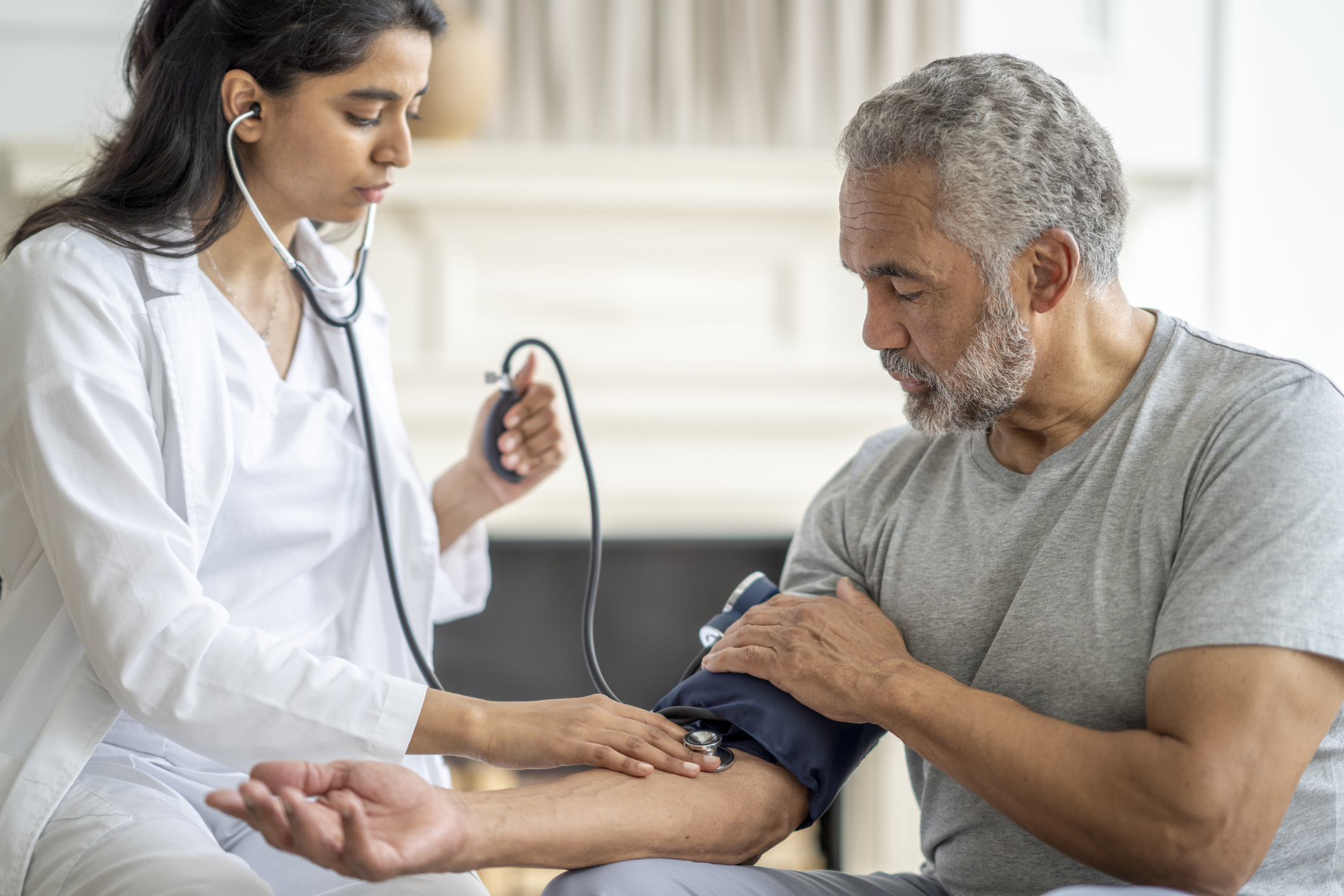Lower Blood Pressure Naturally: 5 Effective Tips
More than 100 million Americans — or nearly half of U.S. adults — have high blood pressure (also called hypertension), which is a leading risk factor for heart disease. And while many are on medication to lower their blood pressure, some 30 million Americans out of that grand total have what’s known as stage 1 hypertension, for which blood pressure–lowering medication is not always recommended. (Stage 1 is when the systolic, or upper, number on a blood pressure reading is between 130 and 139 mm Hg and the diastolic, or bottom, number is between 80 and 89 mm Hg.)
Yet if left untreated, hypertension can lead to heart attacks, strokes, heart failure and kidney disease, particularly among men and people of color, says Kendra Sims, an epidemiologist at the University of California at San Francisco (UCSF) School of Medicine.
Lifestyle tweaks like losing weight, reducing your salt intake, exercising, limiting alcohol and lowering stress are all effective ways to wrangle hypertension, research shows.
In this blog post, we will explore five effective tips to help you lower your blood pressure naturally.
Also see: When to Go to the ER for High Blood Pressure and Hypertension
1. Maintain a Healthy Diet.
Diet plays a crucial role in managing blood pressure. Adopting a heart-healthy diet can significantly lower your risk of hypertension. Here are some dietary tips to consider:
- Reduce Sodium Intake. High sodium intake is a major contributor to high blood pressure. Aim to limit your daily sodium intake to less than 2,300 milligrams, which is roughly one teaspoon of salt.
- Increase Potassium-Rich Foods. Potassium helps counteract the effects of sodium and relax blood vessel walls. Incorporate potassium-rich foods like bananas, oranges, spinach, and sweet potatoes into your diet.
- Embrace the DASH Diet. The Dietary Approaches to Stop Hypertension (DASH) diet emphasizes fruits, vegetables, whole grains, lean proteins, and low-fat dairy products. It's a well-known approach for reducing blood pressure.
- Limit Alcohol and Caffeine. Excessive alcohol and caffeine consumption can raise blood pressure. Moderation is key, so limit your intake of both.
Also see: 9 Best (and Worst) Foods for High Blood Pressure
2. Exercise Regularly.
Physical activity is another powerful tool for naturally lowering blood pressure. Aim for at least 150 minutes of moderate-intensity exercise or 75 minutes of vigorous-intensity exercise per week. Activities like brisk walking, jogging, cycling, and swimming can help improve cardiovascular health and reduce hypertension risk.
3. Manage Stress.
Chronic stress can contribute to high blood pressure. Finding effective stress management techniques can be crucial. Consider practices such as:
- Meditation. Regular meditation or mindfulness practice can help lower stress levels and promote relaxation.
- Yoga. Yoga combines physical activity with relaxation techniques, making it an excellent choice for reducing stress and blood pressure.
- Deep Breathing. Deep breathing exercises, like the 4-7-8 technique, can calm the nervous system and lower blood pressure.
Also see: 10 Common Symptoms of High Blood Pressure
4. Maintain a Healthy Weight.
Carrying excess weight can increase the strain on your heart and raise blood pressure. Losing even a small amount of weight can make a significant difference. Focus on a balanced diet and regular exercise to achieve and maintain a healthy weight.
Also see: 15 Foods You Can Eat Without Gaining Weight
5. Limit Smoking and Alcohol.
Both smoking and excessive alcohol consumption are detrimental to blood pressure and overall health. Quitting smoking and reducing alcohol intake can have a profound impact on your cardiovascular well-being. Seek support if needed, as quitting these habits can be challenging but immensely beneficial.
High blood pressure is a serious health concern that requires proactive management. By making lifestyle changes such as improving your diet, increasing physical activity, managing stress, maintaining a healthy weight, and reducing harmful habits, you can naturally lower your blood pressure and reduce your risk of related health problems. Always consult with a healthcare professional before making significant changes to your lifestyle or if you have any concerns about your blood pressure. Prioritizing your cardiovascular health is a vital step toward a longer, healthier life.
Also see: How Dehydration Affects Blood Pressure
Remember, this blog provides general information and should not replace professional medical advice. If you are concerned about your blood pressure reading or experiencing any of the above symptoms, it's advisable to seek professional help from your healthcare provider or call or visit our Closest Emergency Room for medical help. We have board-certified physicians, nurses and staff to help you recover and give appropriate treatment and medical advice.
We have ER locations across the Dallas-Fort Worth metropolitan area that are open and here to help you 24/7 If you or your family have a medical emergency.
We have 9 facilities spread across the DFW area with average wait times of less than 10 mins that are OPEN 24/7 located in Hurst, Colleyville, Frisco, Highland Village, Hillcrest, Uptown, Little Elm, Mansfield, and Texoma.



.jpg)